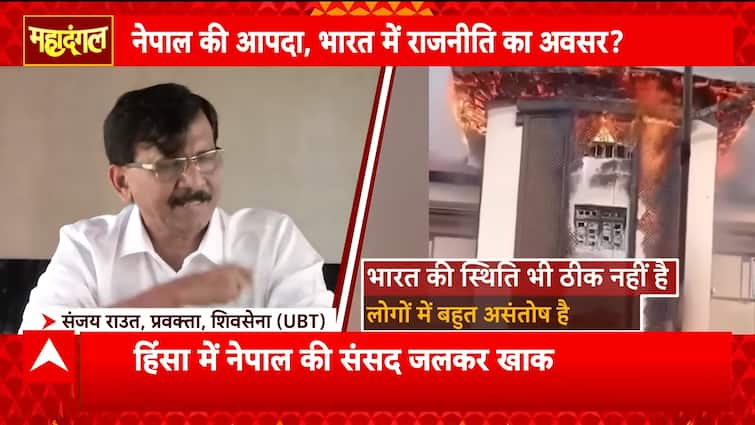Nepal has been engulfed in widespread violence following an anti-corruption movement that spiraled into chaos. What began as a protest against “loot-tantra” (corruption) quickly turned into nationwide anarchy, with mobs setting fire to key government buildings including the Parliament, Prime Minister’s Office, and even the Supreme Court. The violence escalated further as the former Prime Minister’s wife was reportedly killed and Sher Bahadur Deuba himself was assaulted by protestors. Over 500 government buildings have been destroyed, leaving Nepal with a damage toll that may take years to recover from. The ripple effect of Nepal’s unrest has reached India, where opposition parties have drawn controversial parallels and issued provocative statements. Some leaders from Congress, SP, and Uddhav Thackeray’s party have hinted that India could witness similar unrest, citing rising dissatisfaction among the Indian public. Their remarks, considered inflammatory by ruling party members, have sparked a fierce political debate. The Indian government has condemned such comparisons, labeling them irresponsible and dangerous. With India maintaining political stability under PM Modi, officials stress that inciting statements only aim to destabilize the nation. Meanwhile, questions arise: Are opposition parties exploiting Nepal’s tragedy for political mileage? Is it ethical to compare two different nations’ crises for domestic political gains?



